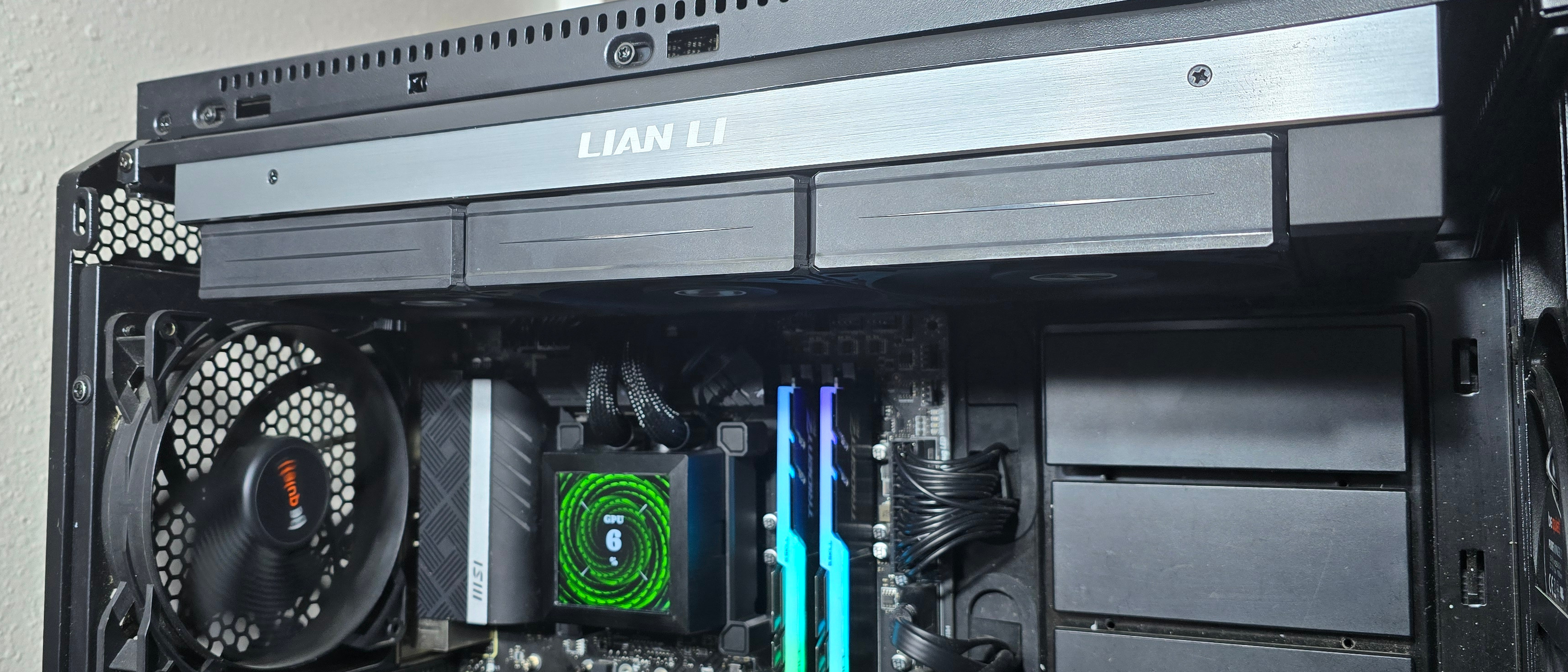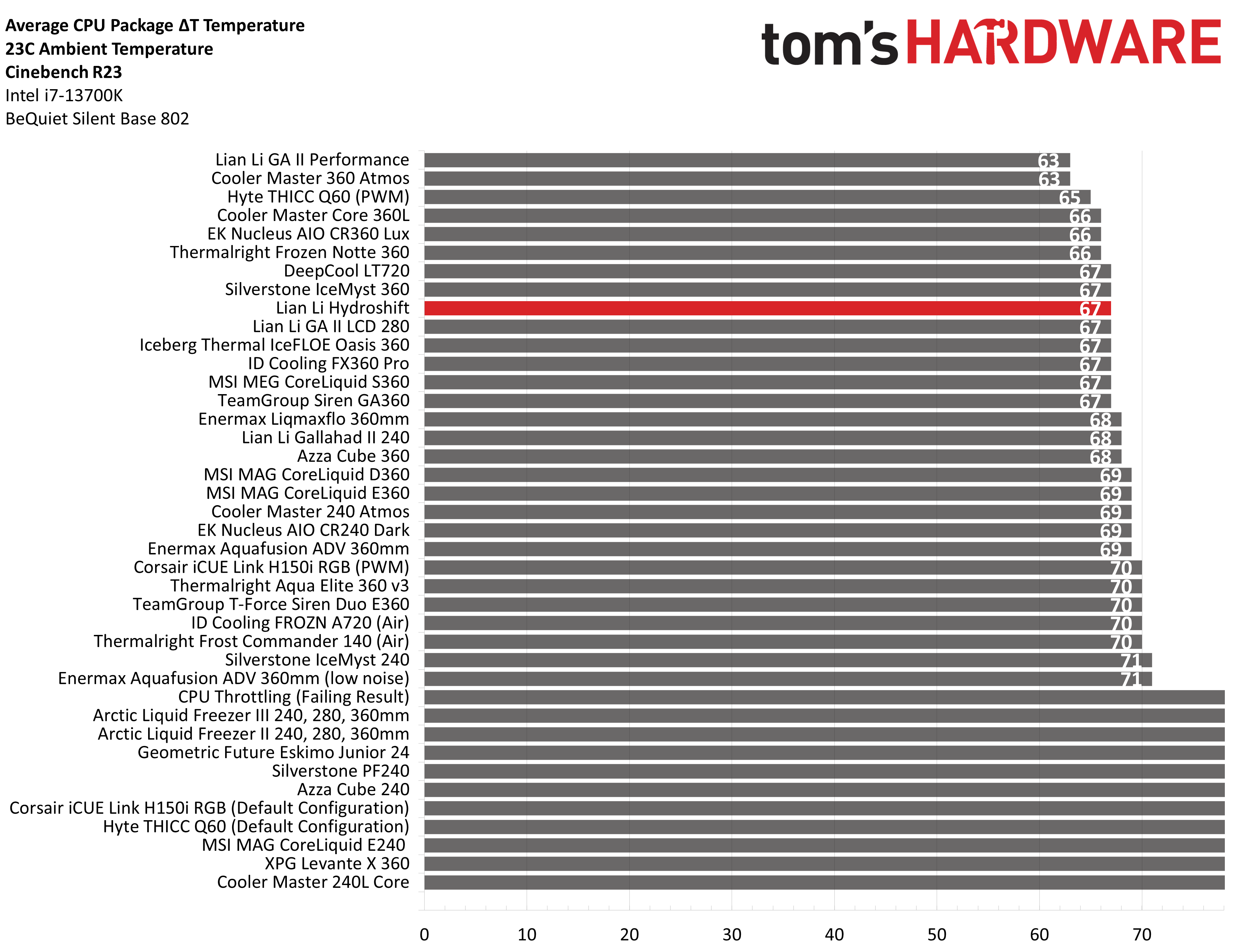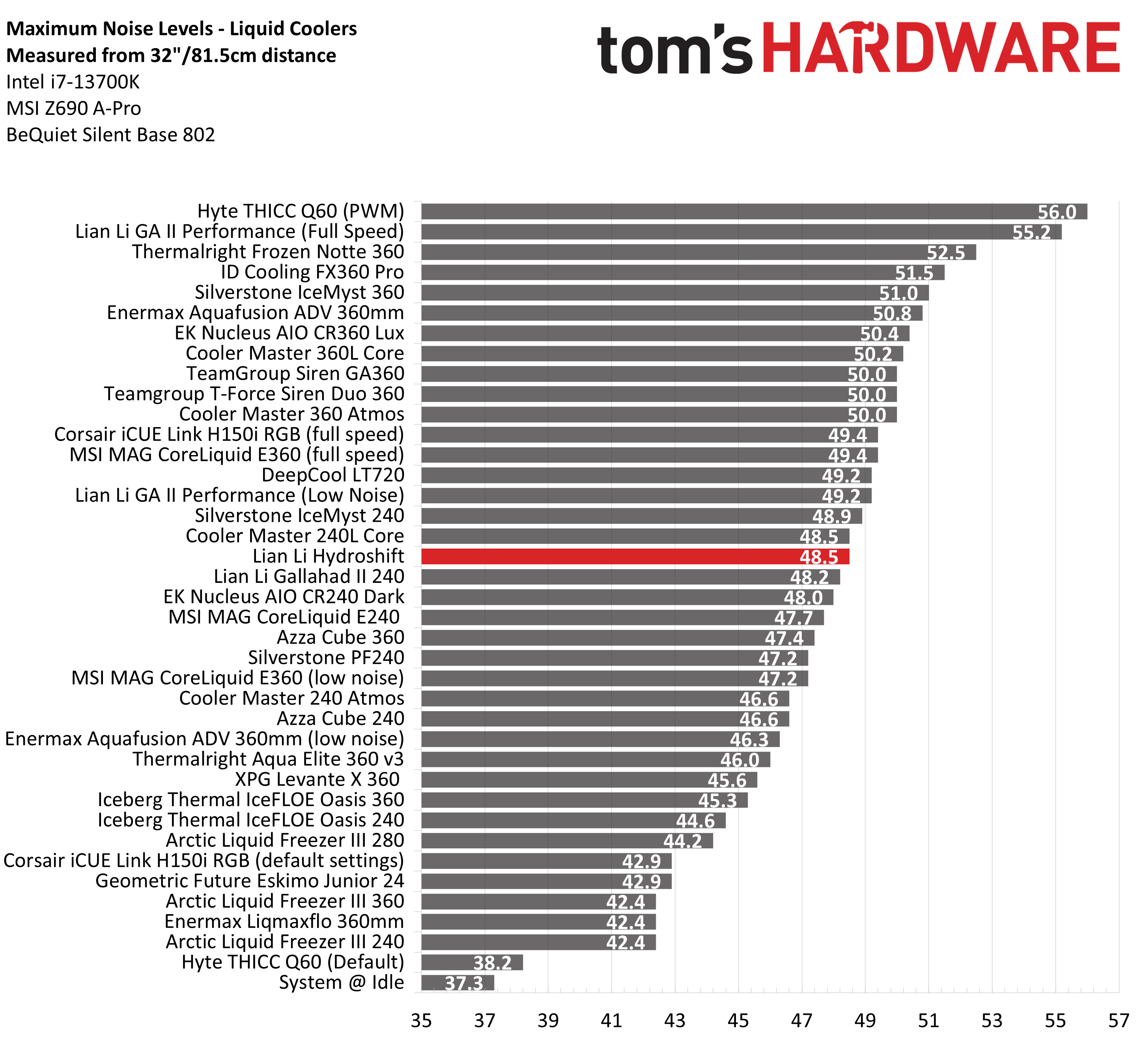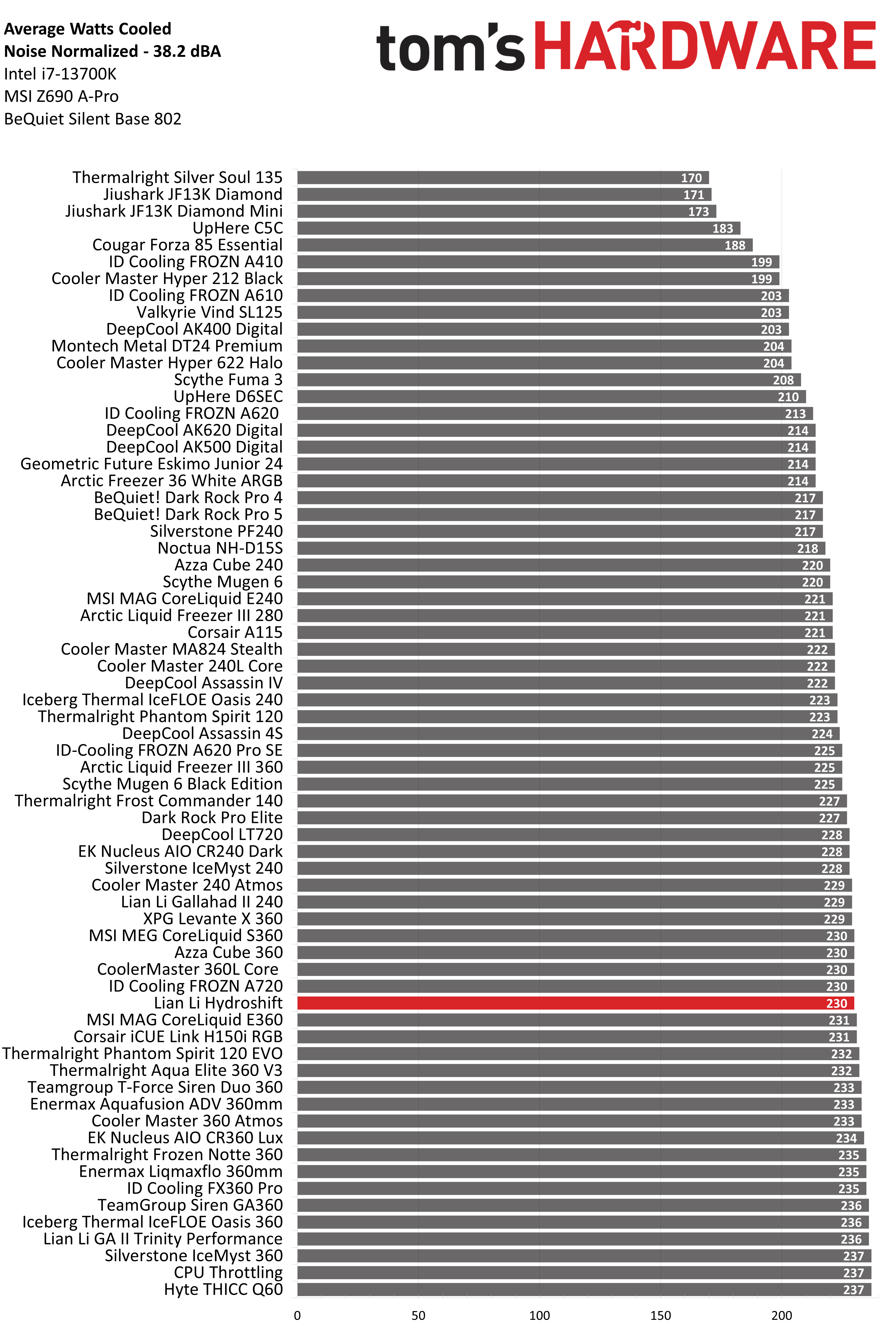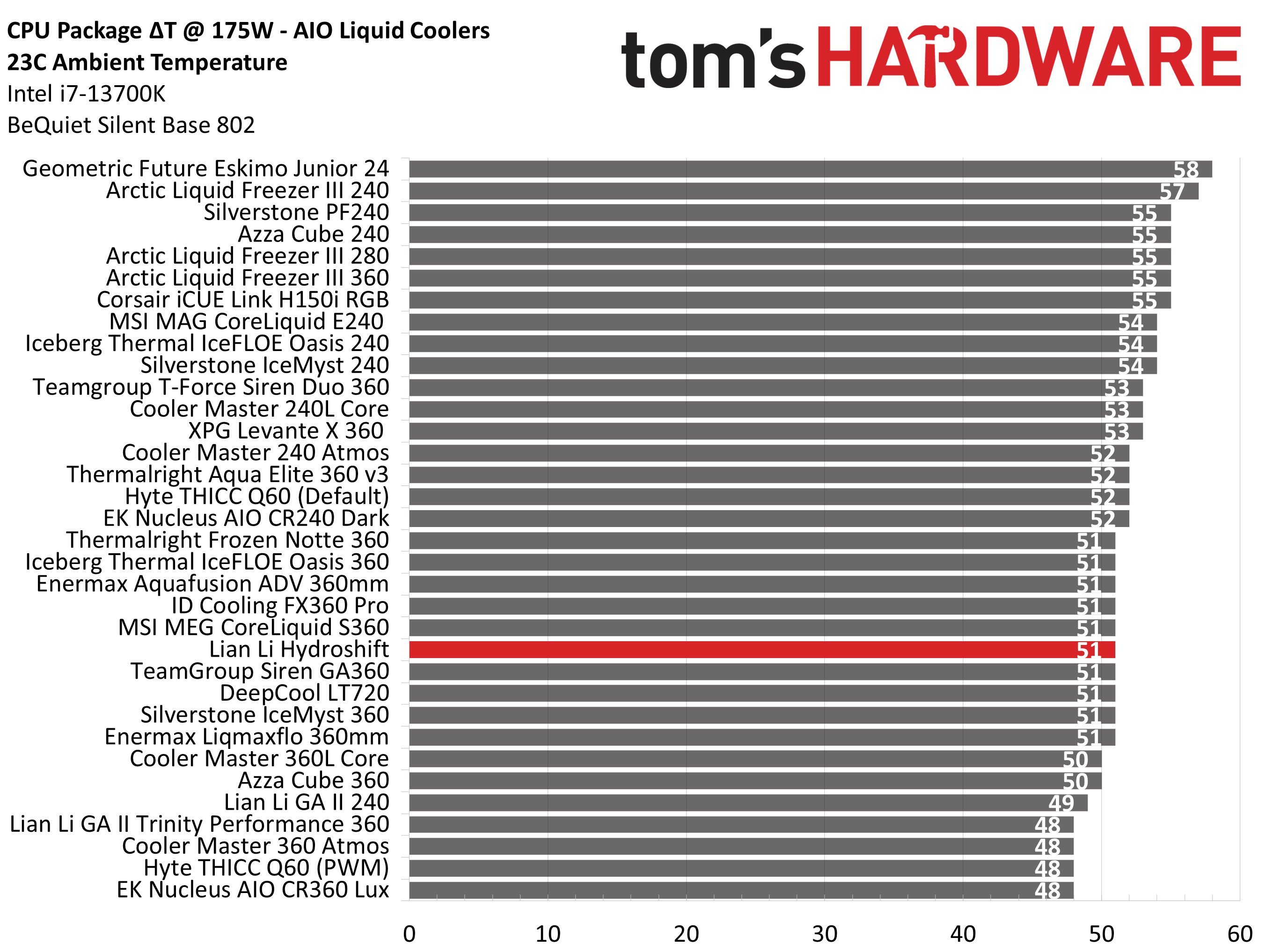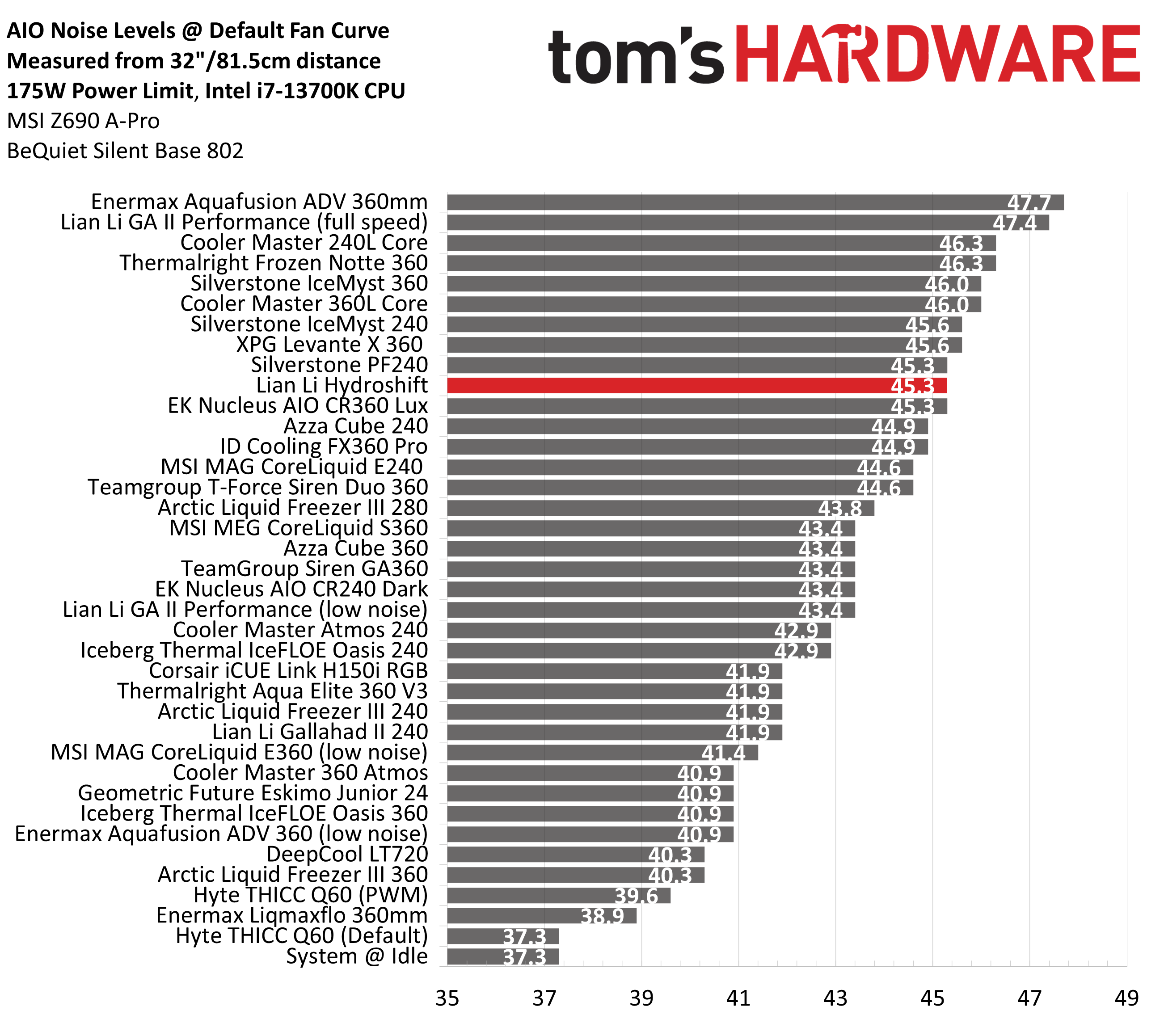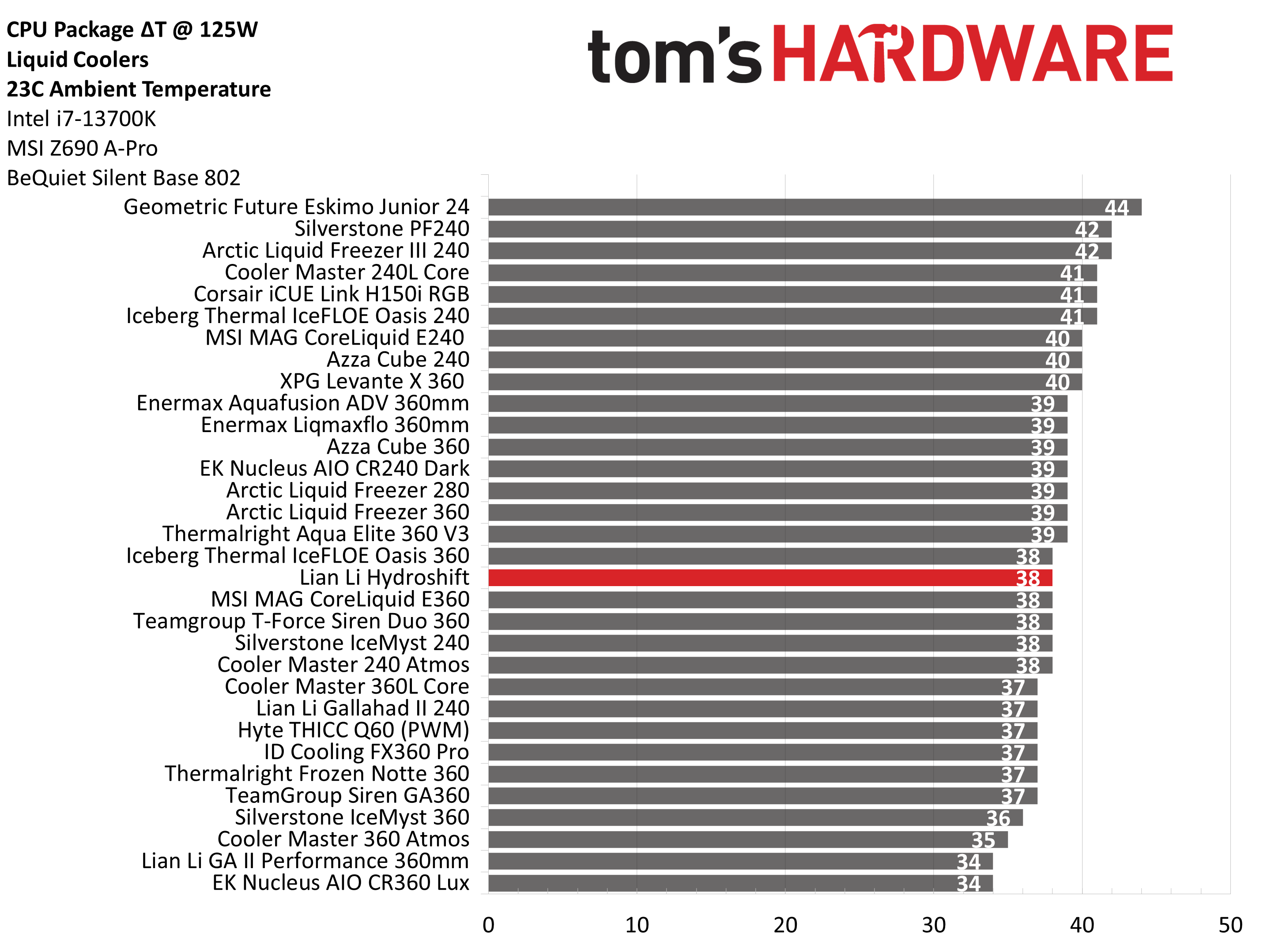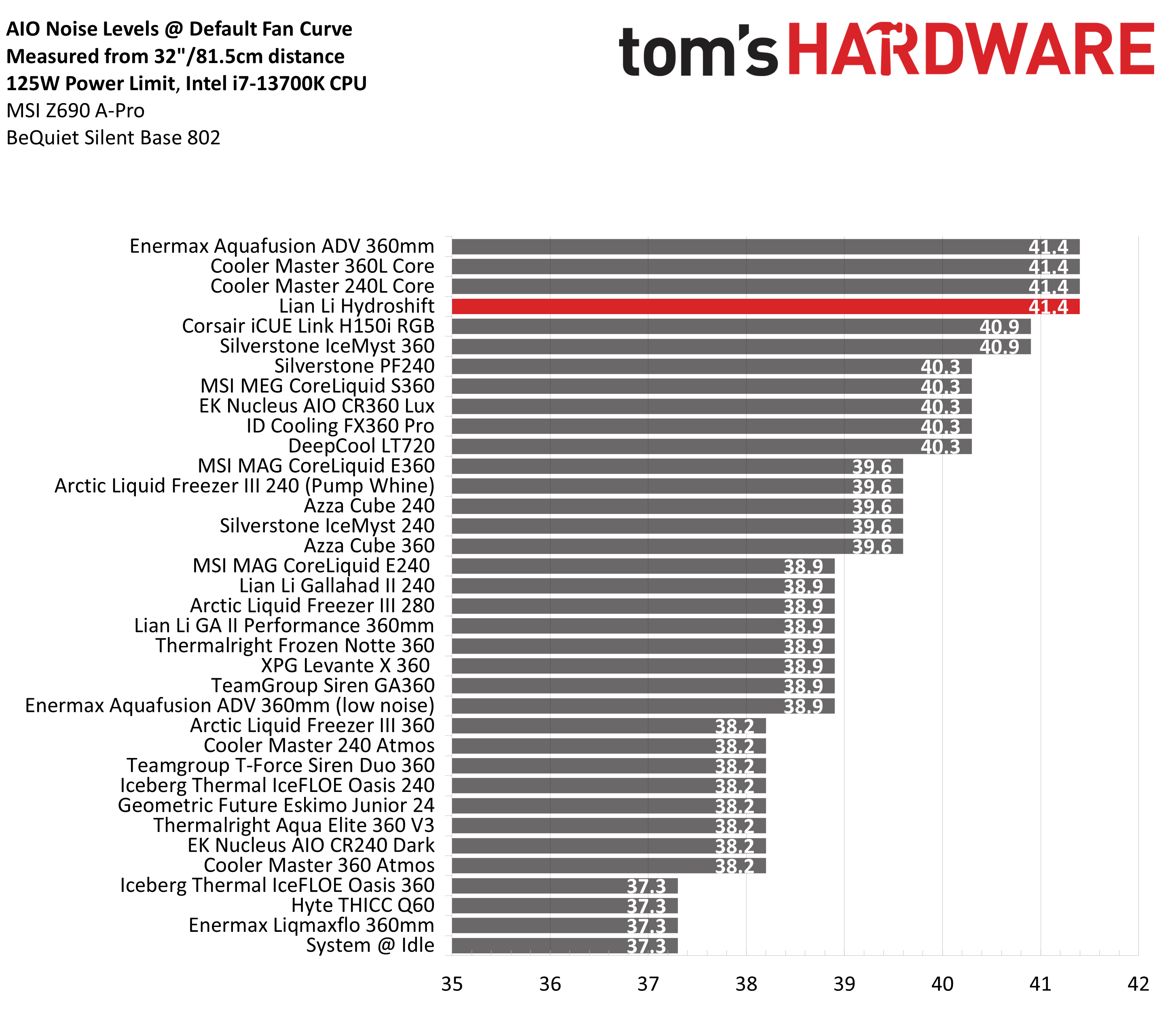Why you can trust Tom's Hardware
Thermal results without power limits
Without power limits enforced on Intel’s i7-13700K, the CPU will hit its peak temperature (TJ Max) and thermally throttle with even the strongest of air coolers. When the CPU reaches its peak temperature, I’ve measured the CPU package power to determine the maximum wattage cooled to best compare their performance.
The general exception to this comes with the strongest AIOs on the market, which can keep Intel’s i7-13700K under TJ Max. This is no small task, as many 360mm AIOs fail this test. Lian Li’s Hydroshift 360S passes this test, keeping the CPU’s temperature at 67C over ambient - performing on par with some of the best coolers we’ve tested including DeepCool’s LT720 and Iceberg Thermal’s IceFLOE Oasis 360.
To achieve this level of performance, the unrestricted fans run up to 48.5 dBA. This is slightly louder than I am personally comfortable with, but it is in the middle of the road for liquid cooling results.
Thermal results with noise normalized to 38.2 dBA
Finding the right balance between fan noise levels and cooling performance is important. While running fans at full speed can improve cooling capacity to some extent, the benefits are limited and many users prefer a quieter system. With this noise-normalized test, I’ve set noise levels to 38.2 dba. This level of noise is a low volume level, but slightly audible to most people.
With the noise of the fans limited to 38.2 dBA, Lian Li’s Hydroshift 360S cooled 230W. This is one of the better results we have for this scenario, with stronger units only gaining a few watts of cooling performance.
175W Cinebench results
Most coolers on the market can keep Intel’s i7-13700K under its peak temperature if the power consumption is limited, so for this test, we’ll be looking at the CPU’s actual temperature.
The result of 51C over ambient is fairly good, in the strongest third of our results. But noise levels reached 45.3 dBA, which is louder than most results we have seen for this test.
Get Tom's Hardware's best news and in-depth reviews, straight to your inbox.
125W Cinebench results
The lowest power limit I test with Raptor Lake CPUs is 125W. This is a high enough limit to allow the CPU to maintain its base clock speeds even in the most intensive tests, and most coolers should be capable of keeping the CPU below TJ Max (the max temperature before throttling) – even low-end coolers.
Really, thermals do not matter in this scenario. Even Intel’s stock cooler can handle a load like this with ease. Noise levels, rather than CPU temperature, are the most important factor here. The cooler reaches 38 degrees C over ambient in this scenario, which is one of the better results.
Noise levels reached 41.4 dBA in this scenario. While this isn’t loud exactly, this is one of the loudest results we’ve seen from any AIO.
Conclusion
Lian Li’s Hydroshift AIOs feature a unique approach to managing and reducing clutter from AIO tubes, and those who are particular about cable management may find this very appealing. In particular, those building systems with rear-connector motherboards that hide many of the other cables inside a PC, could severely limit the amount of tubing that’s visible in a build with this cooler.
But the Hydroshift 360S retails for $179.99 USD, and it’s not the strongest or quietest of coolers in its price range. If you’re looking for more cooling performance, models with thicker radiators and stronger fans, like the Hydroshift LCD 360RGB and Hydroshift LC 360TL, are also available, though I haven’t had a chance to test that model yet.

Albert Thomas is a contributor for Tom’s Hardware, primarily covering CPU cooling reviews.
-
Albert.Thomas Reply
You're welcome. I'm glad to see you appreciate the reviewHeiro78 said:Thank you for all the work Albert! -
thestryker Seems like a decent cooler if you're interested in having a LCD. I really like the bracket to hold up the tubes as that seems like a clever way to keep them out of the way.Reply
It's not real clear, but is the pump one of Lian-li's in house designs?
The advertising from Lian-li does compare the design to the Galahad II Performance which was in house. It is also compared favorably to the LCD version which I know was Asetek so I'm guessing it is an in house design.
Quick note on the information chart in the review: it shows 5 year warranty, but it's advertised as 6 year. -
JamesLahey I just like to see some innovation and variety in the market, so big kudos to Lian Li for coming up with this.Reply
Most folks I know treat cooling as a lower tier priority in their build, but for those of us who enjoy the aesthetic, this is a really cool option! -
thestryker Reply
It cannot, it only supports AM4/AM5 and LGA1700/1851 so it seems the specs part of the article is incorrect.Zordnemes said:Hello, can this really be installed on LGA1151?
